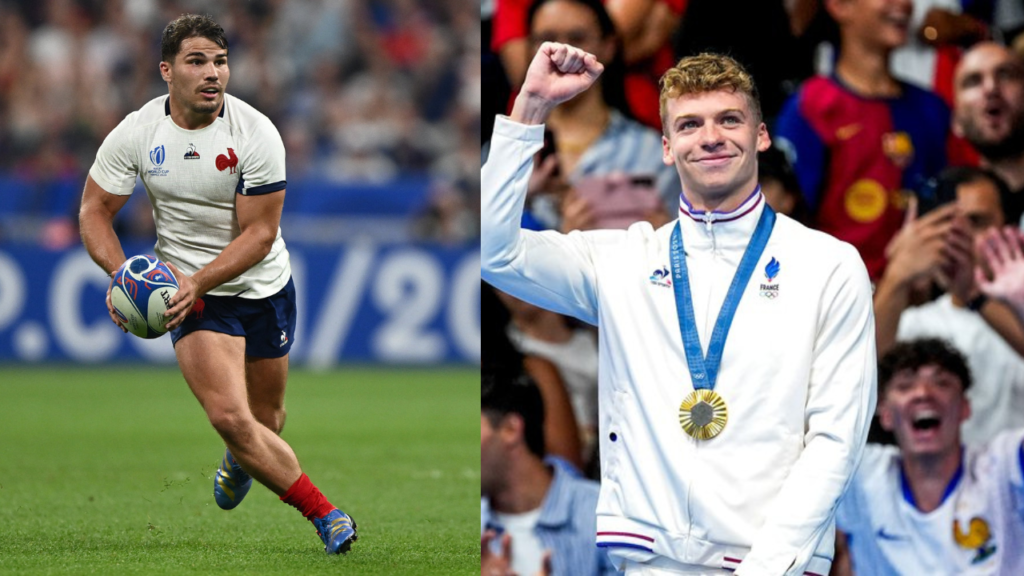
Good luck, Los Angeles, you’ll certainly need it. While there may have been more than a quibble or two about certain organisational aspects at Paris 2024, events on track, in the pool, on turf, in the ring, on the mats and on the greens certainly lived up to blue-riband billing. The atmosphere inside the Stade de France and the Paris La Defense Arena for the swimming events had to be seen to be believed, and it was no coincidence that both venues had such a buzz because of the exploits of local heroes.
For any Games to be truly memorable, there needs to be a true local connect. It can’t just be thousands of volunteers beavering away. LA 1984 still shines bright in many memories because of the exploits of Mary Lou Retton in the gymnastics arena, and Greg Louganis in the diving pool. Retton, just 16, won the all-around gold, the first female gymnast from outside Eastern Europe to do so, while Louganis was the master of both the 3m springboard and the 10m platform.
In Atlanta 12 years later, the USA’s Amy Van Dyken was the darling of the pool, while Michael Johnson scorched the track on his way to the 200-400m double. The Sydney Games at the turn of the millennium are recalled for Cathy Freeman’s run into Indigenous history and Ian Thorpe’s dominance in the pool. Beijing in 2008 offered the world a unique Bird’s Nest Stadium, but much of the sheen was lost by the injury that cost Liu Xiang, local hero and defending 110m hurdles champion, the chance to defend his title.
Those that attended the London Games still speak of the exploits of Jessica Ennis-Hill, Mo Farah and Andy Murray. Britain has always been enthusiastic about Olympic sport, but after the disaster in Atlanta — when they finished with a solitary gold — there had been a wholesale reboot, which resulted in the high watermark of 29 gold medals in London.
Rio in 2016 had an emotional football gold medal for Neymar, who scored four goals including the opener in the final against Germany. Given that sort of history, Paris knew it needed an early statement from someone competing under the tricolore. They got it the night the roof came off the Stade de France as Antoine Dupont led France to Rugby 7s gold after upsetting Fiji, typically the masters of the seven-person sport.
Dupont, the outstanding rugby talent of his generation, even skipped the annual Six Nations tournament to focus on the Olympics, and was used as a second-half substitute by the French. His skills, honed by his sniping runs and clever kicks in the 15-man game, were too much for even Fiji to handle.
But even Dupont struggled to match the hysteria generated in the swimming pool, where Leon Marchand made a strong case to be considered the most complete swimmer of all time. Most swim legends of the past — Mark Spitz, Michael Phelps, Tamas Darnyi and Thorpe, to name just four — were masters of one or two strokes, usually freestyle and butterfly. They were also fortunate enough to swim for nations that dominated the relays.
Marchand won four individual golds. His freestyle finishes were too much for his competitors in the two medley relays, but he also won the 200m butterfly and 200m breaststroke. It’s unheard of for a butterfly champion to be an elite breaststroker as well, but that was just what Marchand did over the course of a week at the pool that saw the likes of Emmanuel Macron, the French President, and sports stars like Antoine Griezmann cheering him on.
That duo and less-heralded names like Lisa Barbelin, who won an unexpected bronze in the women’s individual archery, ensured that the locals had plenty of reason to turn up in big numbers for the Games. As much as the Olympic spirit, it’s the host city being steeped in sporting culture that makes the four-yearly event an unforgettable spectacle. In that respect, Paris acedit. Over to you, LA.



